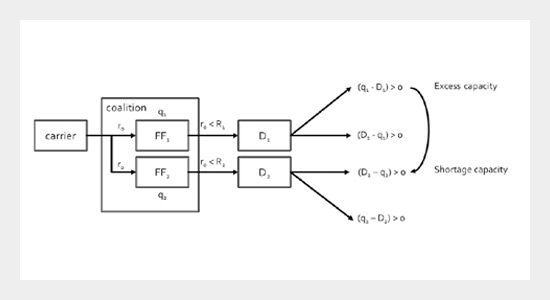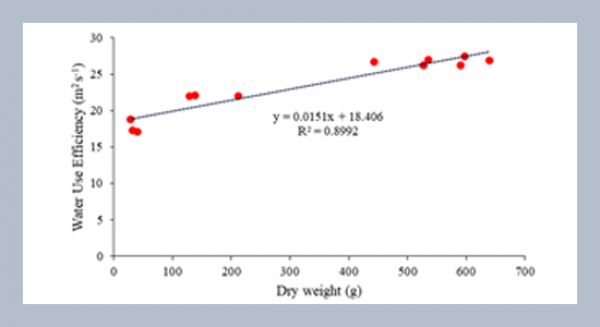Alain Widjanarkaa,b*, Budisantoso Wirjodirdjoa, I Nyoman Pujawana, and Imam Baihaqic aDepartment of Industrial Engineering, Sepuluh Nopember Institute of Technology, Sukolilo, Surabaya, Indonesia
bDepartment of Operation Management, School of Management PPM, Menteng, Jakarta, Indonesia
cDepartment of Business Management, Sepuluh Nopember Institute of Technology, Sukolilo, Surabaya, Indonesia
Download Citation:
|
Download PDF
Freight forwarders are the crucial partner for the carrier to utilize its capacity. Carrier will be prepared the capacity while freight forwarder is generated demand, which is intended to use the capacity. Carrier, firstly, offers capacities to the freight forwarder before selling those under spot market mechanism. Therefore, prior to the distribution process, freight forwarders booked some amount of capacities and they are trying to sell those to shippers that have the shipping demand. They generate profit from each of the capacity that has been sold. Since freight forwarders had been booked just before demand arise, then they are faced two kinds of risk. Either freight forwarders are dealing with the overbooked capacity or shortage capacity. This article provides the optimum capacity-booking model that derivate from freight forwarder expected profit model. Freight forwarders will earn a maximum profit at a particular number of capacity booked. Further study is extended in the coalition scenario to response demand uncertainty. Under the proposed scenario, freight forwarders have the opportunity to share capacity without any discrimination rate. The overbooked and shortage capacity tends to decrease and it will improve the profitability. The result demonstrated that coalition is not only affected the expected profit but also impact to the quantity of capacity booked.ABSTRACT
Keywords:
Coalition; freight forwarder; capacity booked; optimum capacity-booking
Share this article with your colleagues
REFERENCES
ARTICLE INFORMATION
Received:
2018-06-25
Revised:
2018-10-09
Accepted:
2018-10-11
Available Online:
2018-10-11
Widjanarka, A., Wirjodirdjo, B., Pujawan, I N., Baihaqi, I. 2018. Coalition in utilization capacity in container transportation services. International Journal of Applied Science and Engineering, 15, 95-104. https://doi.org/10.6703/IJASE.201810_15(2).095
Cite this article:






